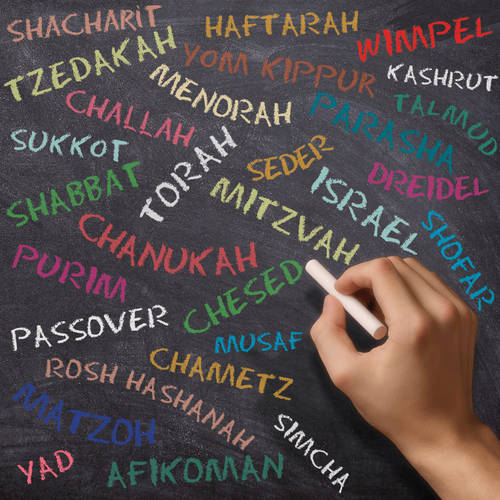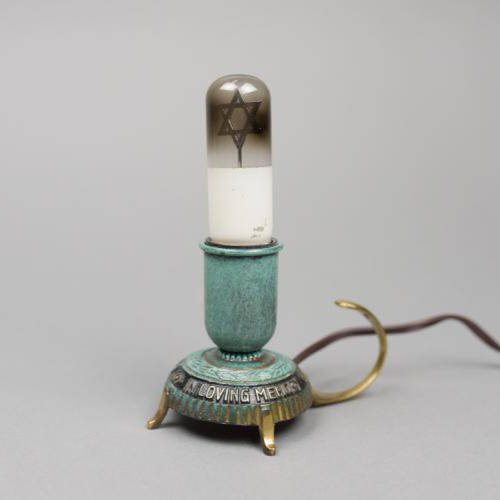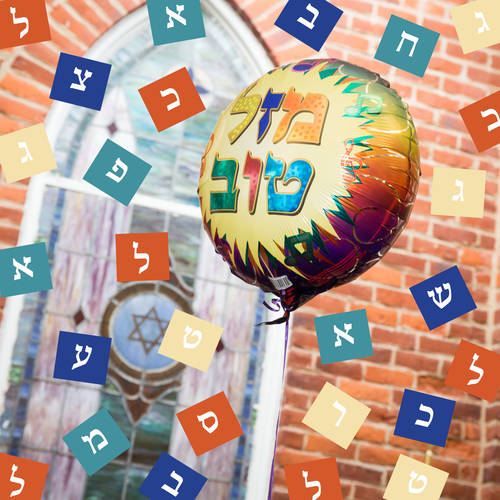Tikkun Middot
Tikkun Middot at CBI
Tikkun Middot is the practice of personal growth through a process designed to help one cultivate particular traits of moral character (or "virtues"). These traits (middot) include such qualities as patience, humility, compassion, trust, and mindful speech.
In 2013, Congregation Beth Israel was selected as one of 27 communities to pilot the Tikkun Middot Project (TMP) under the auspices of the Institute for Jewish Spirituality. Since embarking on the project, Emeritus Rabbi Dan Alexander, Rabbi Tom Gutherz, and Jill Clark (CBI’s Director of Early Childhood Education) have facilitated groups of Tikkun Middot study and practice for several groups of CBI staff, board members, teachers and other congregants. Meanwhile, others have experienced aspects of the Tikkun Middot curriculum in the setting of a Beit Midrash, as a D'var Torah at a committee meeting, as part of teacher training session, or in a discussion among friends or at home. The practice of Tikkun Middot can help one become more awake, more attentive, and more kind than would otherwise be the case.
Following the High Holidays of 2015 (5776), Congregation Beth Israel offered a Middah-of-the Month such that each month was devoted to sermons, poems, texts, focus phrases, and suggested practices designed as a resource for anyone wishing to start or continue their study and practice of the following middot.
Hitlamdut / Reflexive Learning
Hitlamdut, meaning self-reflexive learning, a disposition toward learning in general and Torah learning in particular. In brief, this disposition would have us look at Torah for its capacity to inform and give insight into our own lives and at the same time look in a focused way at our personal experience for its “Torah.” Torah must enter experience and experience must become Torah.
Focus Phrase: Torah pertains to my life. My life is a sacred text.
Practice: Notice what you can learn from the small actions of others, at least three times a day.
Bechira Points
Bechira Points is the concept that moments of choice present themselves to us during the course of each and every day. At its core, Jewish ethics assumes that one has the freedom to make choices for better or for ill. The approach of Tikkun Middot assumes that the choices we make can subsequently inform the kinds of people we become. When we act as a matter of routine or habit, for better or worse, or when we act mindlessly, acting on impulse or instinct or going along with the crowd, choice points are absent. Bechira points occur only when one has awareness that one has a choice.
Focus Phrase: Choose life that you may live!
Anavah / Humility
Unlike the traditional definition of humility, the Jewish definition of a person who has humility is someone who takes up just the right amount of space. A humble person is one who has a healthy sense of self-esteem and is hospitable to others. That means that he does not think he is better than others but also does not feel that he is worse.
Focus Phrase: No more than my space, no less than my place.
Practice: Choose one time each day to notice how much space you are taking. This can be at a meeting, at home, in the classroom, etc. Are you taking too much space, too little space, or just the right amount? Try out different settings to get a sense of how your anavah/humility is influenced by different circumstances.
Savlanut / Patience / Forebearance
Savlanut shares the same Hebrew root as the words for sivlot/burdens and sablan/porter. Patience can therefore be understood as the ability to bear a burden until the appropriate time for setting it aside. Often patience requires waiting or demonstrating self-control. We all experience frustrations in our lives which require forbearance. How do you feel when you have no control over waiting for someone or something? As with all middot, the first step is to notice the situation calling for patience. Could you use the wait time to count your blessings rather than get irritated? Notice when the choice presents itself. How do you wish to act? How do you wish to feel?
Focus Phrase 1: I will bear this burden until I find the right time and place to set it down.
Focus Phrase 2: Despite being insulted I will not withhold my goodness from you.
Practice: Choose a fifteen minute period during the day, one when you know you often get frustrated. During this fifteen minute period, do whatever you can to bear uncomfortable feelings and keep your goodness flowing towards others.
Chesed/Lovingkindness
According to Jewish mystical tradition God created the world primarily in order to bestow kindness and love on all of creation. From this perspective, the constant outpouring of divine Chesed both initiated the world's creation and has sustained it ever since. In this scheme, we humans are co-creators with God. Thus, by expressing human Chesed, we imitate God and, in doing so, we achieve our highest capacity as co-creators. We do Chesed by providing meals to parents of newborns, visiting the sick, attending to the needs of the dead, comforting mourners, attending one another's joyous celebrations, being present for one another in non-judgmental acceptance, by greeting family, friend, and stranger, with a warm smile. At CBI, the Caring Committee, the Chevra Kadisha, and the Tzedakah Fund are a few of the ways one might channel the middah, the quality of Chesed. Any act of kindness, no matter how small, puts us in contact with those around us, helping to weave the fabric of community, and, bit by bit, builds the world.
Focus Phrase 1: The world is built through chesed: olam chesed yibaneh.
Focus Phrase 2: Greet each person with a warm smile.
Practice 1: Direct your attention as much as possible to situations in which others may need a hand. Try to do this with one person per day, and choose the person on whom you will focus. The goal is not simply notice but also to pay attention to what it is like for you to notice where others struggle and may need a hand.
Practice 2: Give your best warm attention in a smile to at least three different people each day. Try to really notice the people to whom you are giving your attention.
Kavod / Respect/Dignity / Honor
As we continue our practice of Kavod (respect, dignity, honor), we revisit the middah of Anavah (humility or modesty) and consider this important question: How do we balance humility with honor for one's self? The answer may come from a famous teaching of Rabbi Simcha Bunim (1765-1827): "Everyone should have two pockets each containing a piece of paper. On one should be written - "The world was created for me" and on the other, "I am but ashes and dust.'" Sometimes we must reach for one slip of paper and sometimes for the other. The secret to living with both Kavod and Anavah is knowing which one to reach for in any given situation.
Focus Phrase 1: Who is honorable? The one who honors others.
Practice 1: Choose one thirty minute period during the day and in that time do whatever you can to honor anyone who comes your way.
Practice 2: Do one thing each day that demonstrates kavod for yourself.
Shtika / Silence-Shimrat HaLashon / Careful Speech
Our words have power not only when spoken aloud but also when typed (as a Facebook post or comment, or in an email, etc.). The middah of Shtika reminds us that mindful silence heightens our spiritual sensitivity. While the middah Shmirat HaLashon refers to being thoughtful about how we use the power of speech. So dangerous are thoughtless and intentionally harmful speech to relationships and communities that the rabbis equated Lashon Hara - "harmful speech" to the three most grievous sins: idol worship, murder and incest. - Maimonides, Hilchot De'ot/ Laws of Character Development 7:4
Focus Phrase 1: Death and life are in the power of the tongue.
Focus Phrase 2: Silence is a fence for wisdom.
Practice: Set a fixed time each day for approximately twenty minutes to focus on speech. During this time, notice any thought arousing that would lead to negative words. Pause and breathe; bring attention to the body and the emotions arising; consider something possible to say about the person whom you are thinking in order to learn "lashon tov" (right speech).
Bitachon / Trust
Just days after the Israelites crossed the Reed Sea, God gives them a test to see if they internalized the faith they professed at the sea. God provides Manna, but only allows the people to take exactly what they need and not save any for the next day. The manna test was very carefully crafted. God could have just given every household the amount of Manna it needed to fulfill its daily nutritional requirements. Rather, they needed to work for their food by collecting the manna from the field. Part of being human is that we need to work for our food. We should feel pride in our labor and our ability to make things and support ourselves. At the same time, we need to recognize that it was not just our own capabilities that earned us this livelihood (symbolized by the need to trust that more food will be there tomorrow) and thus, we don’t get to do whatever we want with it (symbolized by the need to not hoard the leftover manna). Tzedakah is one of the mitzvot that trains us to do this. We earn money through our effort, but we must recognize that a portion of those earnings actually belong to the needy.
Focus Phrase 1: Blessed is the person who trusts in God, and whose hope is God.
Practice 1: Choose one effort you are making during the day, assess whether you are approaching this effort out of trust or despair.
Practice 2: At one point each day - it could be a moment of decision or a moment when you need to confront something, act as if you trust in God.
Emunah / Trustworthiness
"Emunah is usually translated as 'Faith' but also means 'Trustworthiness.' While Bitachon is a more general sense of trust in God and/or someone or something beyond ourselves, Emunah is the trust we create through acting with integrity. Do we keep our word, follow-through and show up when we say we will?"--Rabbi David Jaffe, Tikkun Middot Project Curriculum
Focus Phrase: Have I been trustworthy in my transactions with others?
Practice: Each day do at least one thing (such as promptly responding to an email, following through on a small comittment, arrive on time, etc.) that will reinforce anothers trust in you.
Seder / Order
The Hebrew word Seder literally means "Order." The word is widely known because of the Passover Seder, a fitting name for such a highly-structured ritual meal. Structure seems to be a key part of this middah. What is the necessity of structure? The Mussar master, Rabbi Simcha Zissel of Kelm, compared Seder to the clasp on a pearl necklace. “Picture a pearl necklace with a small clasp. Which is more essential - the clasp or the pearls? At first glance the pearls are more essential. But, without the clasp all the pearls would scatter and all that would be left is the chain - thus the clasp seems more essential. A person is like a collection of pearls - he is full of potential, talents, character traits and virtues. Seder is similar to the clasp on the necklace. Without Seder all his virtues and talents scatter and he is left empty.” --Rabbi David Jaffe, Tikkun Middot Project Curriculum
Focus Phrase: One who grabs a lot cannot hold on to it; one who grabs a little holds on to it.
Practice: Choose one thing that is out of order in your life and apply order to it. Notice what thoughts/feelings arise regarding your desires about this item.
Moving forward, CBI intends to offer several other options for private study and practice, including study in Hevruta pairs or facilitated groups. Meanwhile, the rabbis intend to offer Middah study as tracks within CBI Beit Midrash.








